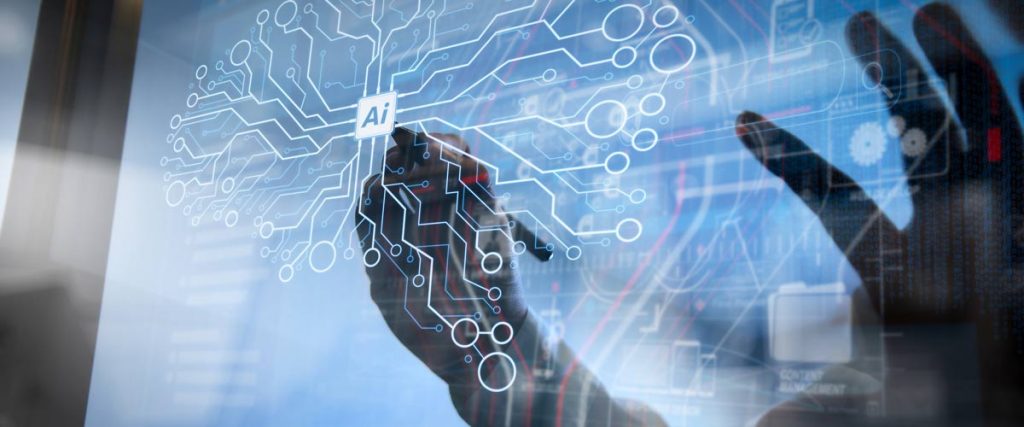AI continues to be one of the biggest topic areas in technology after ChatGPT and other consumer-friendly AI tools became widely available around the start of 2023. The nature of the discussions around AI ranges from over-excited technology enthusiasts claiming that AI will solve all humanity’s problems to doomsday prophets predicting we are on a path to artificially intelligent entities taking over the earth.
Most of us, however, are in the pragmatic middle, working out how we can use AI to improve what we have done in the past for the benefit of the future. And this has brought some big wins, often contradicting perceived wisdom.
For example, one of the big concerns with AI is that it will result in people losing their jobs. A recent study by the Institute of Future Work, Imperial College London, Warrick Business School, and the Nuffield Foundation found that 47 percent of over 1,000 surveyed companies said AI and automation had eliminated positions. However, 67 percent said AI and related technologies had also created new positions.
Other successful implementations of AI technologies include fraud detection, industrial monitoring, and healthcare diagnostics.

As with a lot of other new technologies, however, it’s important to look at the entire picture rather than narrowly focusing on improving AI tools and implementing them as far and wide as possible.
In particular, it is essential we consider the consequences of AI to identify risks and understand the challenges that need to be addressed.
The Consequences of AI
There are likely to be as many potential consequences of AI as there are potential use cases. For this blog, we are going to focus on 10.
- Environmental impact
- Bias
- Privacy
- Ethical challenges
- Security risks
- Power
- Misinformation
- Over-reliance
- Social manipulation
- Unforeseen consequences
Environmental Impact of AI
The environmental impact of AI is a hot topic of debate. Part of this debate is the various studies that show the intense energy and water requirements of the AI industry. For example, a recent study predicts the industry could consume a similar level of energy as the Netherlands within a few years, while Microsoft, a big investor in AI, saw its consumption of water increase by 34 percent over a 12-month period.
On the flip side, the equipment used by the AI industry is likely to improve over the coming years, while AI technologies are also expected to make a big contribution to solving some of the environmental challenges the world is currently facing. What is certain is the growing use of AI comes with environmental consequences.
Bias in AI
In general, AI tools and technologies learn from society, so they reflect society. As society is biased, consciously or unconsciously, AI is often biased too.
Examples of AI bias include:
- A recruitment algorithm trained on a male-dominated workforce that limited opportunities for women.
- A healthcare AI algorithm trained using patient healthcare expenses discriminated against black patients when predicting future healthcare needs because, historically and for a range of health and non-health related reasons, white people spent more on healthcare than black people with similar diseases.
Privacy
AI tools rely on data, lots of it. They learn using the data initially fed into the system, and then they continue to learn as we interact and use AI technologies. This increases the risk of both intentional and unintentional misuse of personal data.
Ethical Challenges
AI technologies are creating a range of ethical challenges we are only starting to get to grips with. Authors and artists, for example, are suing AI companies for using their work to train AI products without permission or compensation.
The biases that exist in AI technologies also create ethical challenges, plus there are issues around a lack of transparency. For some people, the lack of transparency in AI is one of the biggest concerns as the current reality is that AI technologies are doing things and making decisions that people don’t understand, including those people at the cutting edge of AI technologies.
Security Risks
All new technologies bring security risks, not least because they increase the potential attack surface at all levels of society, including for individuals, companies, and governments.
The security risks of AI technologies also have the potential to cross into the physical world in a way society has not experienced before. After all, a hacked phone or laptop is annoying and potentially costly, but a hacked driverless vehicle could cause death or serious injury.
And all that is before we get into the realm of AI-controlled weapons and who has access to them.
Power
Who controls AI is another consideration that will have consequences for society. Many people believe there is a risk that the rapid development of AI technologies will give a handful of people significant levels of power simply because they own and control the best, most used, and most influential AI technologies.
Misinformation
There are countless examples of generative AI tools like ChatGPT spreading misinformation and presenting their responses as facts when they are simply not true.
Over-Reliance
Two of the areas where there are over-reliance concerns with AI are automated AI-driven decision-making and AI-assisted decision-making. In both these areas, AI technologies can get things wrong leading to bad decisions and actions.
There should be sufficient checks and balances to prevent individuals, organisations, and even governments from becoming over-reliant on AI.
Social Manipulation
Some of the consequences of AI mentioned above make it possible for individuals, organisations, and governments to manipulate groups of people. We have seen glimpses of this on social media platforms where disinformation is promoted by algorithms for the benefit of the platform, leading to real-world impacts on society.
Unforeseen Consequences
One of the points above highlights the fact that even the people who build AI technologies don’t completely understand how they work. As a result of this, and the fact that the use of AI is becoming so widespread, there will be consequences that haven’t yet been anticipated.
The AI World
There have been many times throughout history when there have been concerns about the consequences of a new technology. In general, society has been able to work through those concerns, and the same is likely to be the case with AI. That said, we can’t be complacent, not least because of the seismic impact that AI is predicted to have throughout all levels of society. We need to understand the consequences, anticipate the challenges, and work out solutions.
